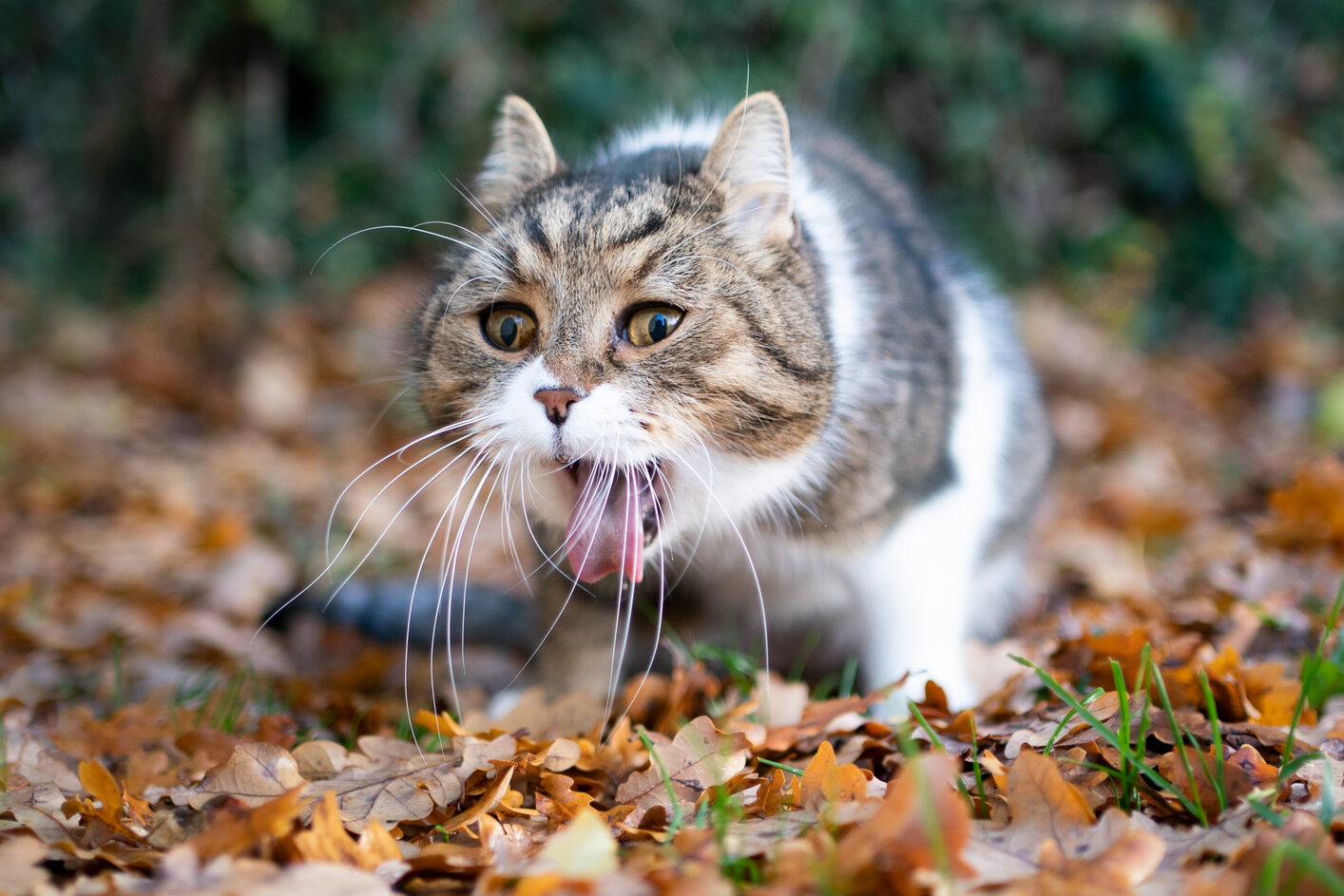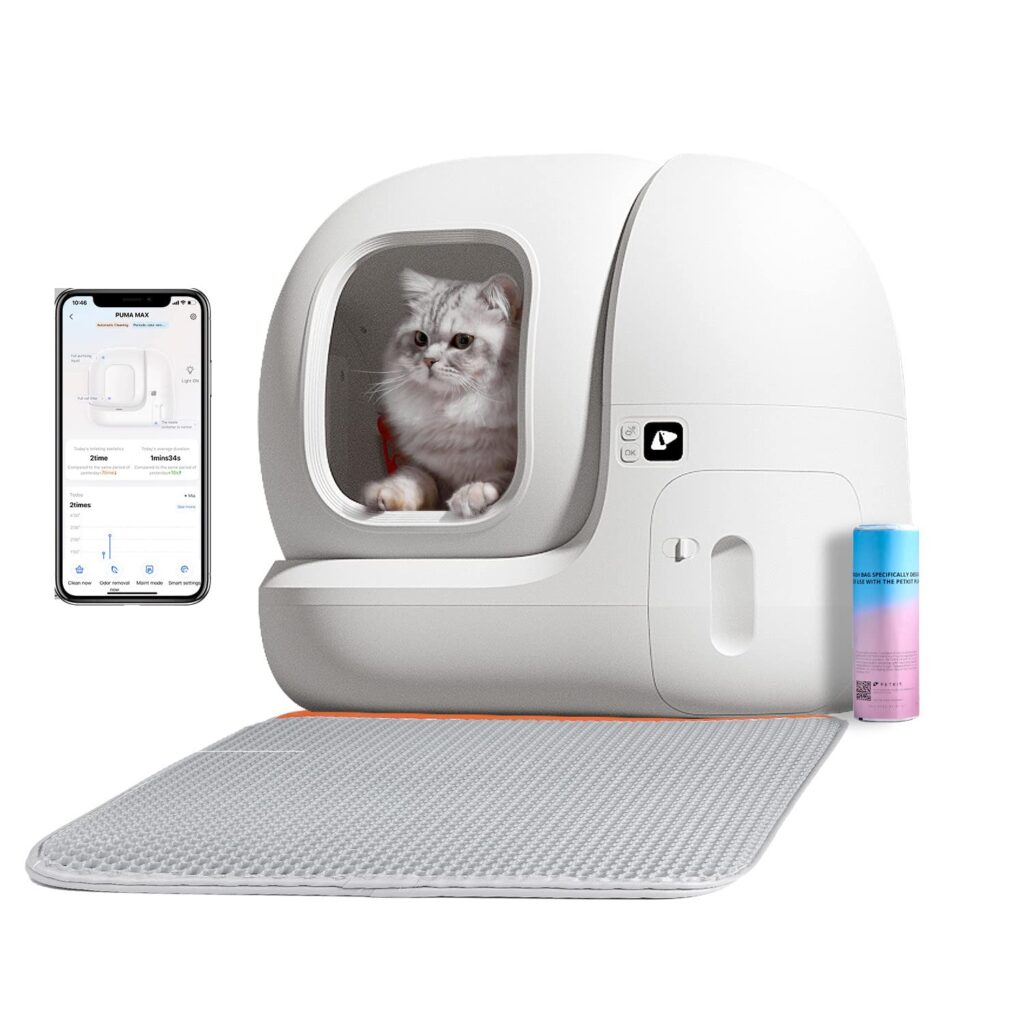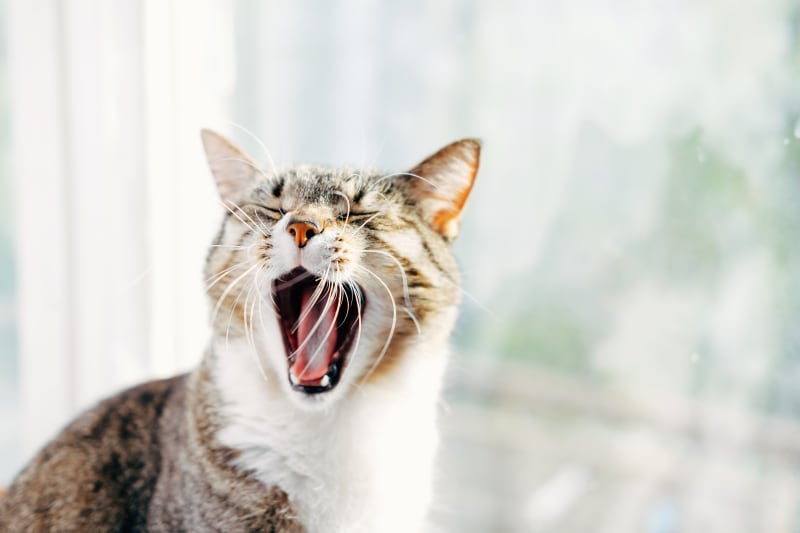A cat swallowing a lot can be a cause for concern and should be monitored closely. This behavior may indicate an underlying health issue that requires veterinary attention.
Cats are known for their quirky behaviors, but when they start swallowing excessively, it can be a cause for concern. As pet owners, it’s natural to worry about our feline friends’ well-being. Understanding whether excessive swallowing is a normal behavior or a sign of an underlying problem is crucial.
We’ll explore the possible reasons behind a cat swallowing a lot and whether it is something that requires immediate attention. By familiarizing ourselves with the potential causes, we can make informed decisions about our pet’s health and seek appropriate veterinary care if necessary. So, let’s delve into this topic and gain a better understanding of why cats might swallow excessively and what it could signify.
Contents
- 1 **potential Causes For Excessive Swallowing In Cats**
- 2 **signs That Indicate Excessive Swallowing**
- 3 **when To Seek Veterinary Attention**
- 4 **provide A Balanced And Hydrated Diet**
- 5 **promote Dental Health**
- 6 **prevent Hairballs**
- 7 **understanding Underlying Health Conditions**
- 8 **recognizing Symptoms Of Serious Issues**
- 9 **consulting A Veterinarian For Proper Diagnosis**
- 10 Frequently Asked Questions For Cat Swallowing A Lot: Is It Cause For Concern?
- 11 Conclusion
**potential Causes For Excessive Swallowing In Cats**
Excessive swallowing in cats can be a cause for concern and may indicate an underlying issue that requires attention. One potential cause is dehydration. Cats who are not drinking enough water may swallow more frequently as their bodies attempt to moisten their dry throats. It is important to ensure that your cat has access to fresh water at all times.
Another possible cause for excessive swallowing is dental issues. Cats with dental problems such as gum disease or tooth decay may swallow more frequently to alleviate discomfort. Regular dental check-ups and proper oral care are essential for maintaining your cat’s oral health.
Hairballs can also lead to excessive swallowing in cats. When grooming, cats ingest loose hair, which can accumulate in their stomachs and cause irritation. This can result in frequent swallowing as they try to alleviate the discomfort caused by hairballs. Regular grooming and using hairball prevention products can help reduce the likelihood of hairball-related swallowing issues.
**signs That Indicate Excessive Swallowing**
Excessive drooling, frequent retching or gagging, and loss of appetite can be signs that your cat is swallowing a lot. While occasional swallowing is normal, excessive swallowing may be a cause for concern. It could indicate a variety of underlying issues such as gastrointestinal discomfort, dental problems, or even an obstruction in the throat or digestive tract.
If you notice your cat swallowing excessively and exhibiting other symptoms like vomiting, coughing, or difficulty breathing, it is important to consult with a veterinarian for a proper diagnosis and treatment plan. The veterinarian may perform a physical examination, conduct diagnostic tests, or recommend further evaluation to determine the cause of the excessive swallowing. Early detection and intervention can help prevent further complications and ensure the well-being of your furry friend.
**when To Seek Veterinary Attention**
Persistent vomiting: If your cat has been vomiting frequently and consistently, it may be a cause for concern. While occasional vomiting can be normal, persistent and excessive vomiting can be a sign of an underlying health issue that requires medical attention.
Weight loss: If your cat is experiencing unexplained weight loss, it is important to seek veterinary attention. Sudden weight loss or a noticeable decrease in appetite can be indicative of a medical condition that needs to be addressed by a professional.
Difficulty breathing: If your cat is having difficulty breathing, it is crucial to consult a veterinarian immediately. Labored breathing, wheezing, or panting could be signs of a respiratory problem or an underlying cardiac issue that requires prompt medical intervention.
**provide A Balanced And Hydrated Diet**
A cat swallowing a lot can be a cause for concern, as it may indicate an underlying health issue. One way to help prevent excessive swallowing is by providing a balanced and hydrated diet. Wet food can be beneficial as it contains a higher moisture content compared to dry kibble. Increased water intake is important for keeping the cat hydrated and promoting optimal digestive function. Another option is to consider hydration supplements, which can be added to the cat’s food or water to ensure they are getting enough fluids.
**promote Dental Health**
Promote dental health
Regular teeth brushing is essential for maintaining your cat’s dental health. Brushing your cat’s teeth helps remove plaque and tartar buildup, preventing dental problems such as gum disease and tooth decay. It is best to start a teeth brushing routine when your cat is young, but it’s never too late to begin.
Another way to promote dental health is by providing your cat with dental treats. These treats are specially formulated to help reduce plaque and freshen breath. Look for treats that have a crunchy texture, as they can help remove plaque as your cat chews.
However, even with regular brushing and dental treats, professional dental cleaning may still be necessary. Professional dental cleaning at your veterinarian’s office involves a thorough examination and cleaning of your cat’s teeth, including scaling and polishing. This can help address any existing dental issues and prevent future problems.
By implementing these dental care practices, you can help keep your cat’s teeth and gums healthy and prevent any potential concerns.
**prevent Hairballs**
- Regular grooming plays a crucial role in preventing hairballs in cats. Brushing your cat on a daily basis can remove loose hair that could otherwise be ingested during self-grooming.
- You can also incorporate hairball control products into your cat’s routine to help mitigate the issue. These products usually come in the form of special cat foods or treats that promote healthier digestion and reduce the formation of hairballs.
By taking these preventive measures, you can help your cat minimize the discomfort and potential health risks associated with hairballs. Remember, maintaining good grooming habits and considering hairball control products are simple yet effective ways to ensure your cat’s well-being.
**understanding Underlying Health Conditions**
It can be concerning when you notice your cat swallowing a lot. Excessive swallowing could be an indication of underlying health conditions that should be addressed. Two potential causes for increased swallowing in cats are gastrointestinal disorders and metabolic disorders. Gastrointestinal disorders, such as stomach inflammation or ulcers, can lead to discomfort and excessive swallowing. Metabolic disorders, such as kidney disease or diabetes, may cause increased thirst and subsequently increased swallowing. In both cases, it is important to monitor your cat’s behavior and consult with a veterinarian if you have any concerns. They can perform a thorough examination and recommend appropriate tests or treatments to address the underlying cause of the excessive swallowing. By identifying and addressing the issue, you can help ensure your cat’s health and well-being.

Credit: frontierveturgentcare.com
**recognizing Symptoms Of Serious Issues**
A cat swallowing a lot can be a cause for concern and may indicate underlying health problems. Some symptoms to watch out for include:
- Bloody stool: If you notice blood in your cat’s stool, it could be a sign of gastrointestinal issues or intestinal parasites.
- Frequent urination: Excessive urination can indicate urinary tract infections or even kidney problems.
- Lethargy: If your cat is unusually lethargic and lacks energy, it may be a sign of an underlying illness or discomfort.
If your cat exhibits any of these symptoms, it is important to consult with a veterinarian for a proper diagnosis and treatment. Keep an eye out for these signs as they may indicate serious health issues that require medical attention.
**consulting A Veterinarian For Proper Diagnosis**
A cat swallowing a lot can be a cause for concern and it is important to consult a veterinarian for a proper diagnosis. A medical examination is necessary to determine the underlying cause of excessive swallowing. The vet may conduct various diagnostic tests such as blood tests, X-rays, or ultrasounds to further evaluate the cat’s condition.
Based on the results of the diagnostic tests, the veterinarian will be able to recommend suitable treatment options. Treatment may include medication to address any underlying medical issues, changes in diet, or behavior modification techniques. It is crucial to follow the vet’s instructions and treatment plan for the well-being of the cat.
Frequently Asked Questions For Cat Swallowing A Lot: Is It Cause For Concern?
Why Does My Cat Keep Swallowing Repeatedly?
Cats may keep swallowing repeatedly due to various reasons, such as hairballs, throat irritation, or an underlying medical issue. It’s important to observe any accompanying symptoms and consult a veterinarian if the behavior persists or worsens. Taking preventive measures, like grooming and providing a balanced diet, can also help alleviate the issue.
Why Is My Cat Doing Weird Swallowing?
Your cat may be doing weird swallowing due to various reasons such as hairballs, dental issues, throat infection, or gastrointestinal problems. It’s best to consult a veterinarian for a proper diagnosis and treatment.
How Do I Know If My Cat Has A Sore Throat?
Signs of a cat with a sore throat include frequent coughing, gagging, and difficulty swallowing. They may also display a hoarse meow or no meow at all. If you suspect your cat has a sore throat, it is best to consult a vet for proper diagnosis and treatment.
How Do You Treat Dysphagia In Cats?
To treat dysphagia in cats, it is important to consult a veterinarian. They may recommend modifying the cat’s diet by using a special food consistency or feeding technique. Medications to reduce inflammation or manage underlying conditions may also be prescribed, along with regular monitoring of the cat’s progress and adjusting the treatment plan as needed.
Conclusion
When your cat starts swallowing a lot, it is essential to pay attention and determine if there is cause for concern. Excessive swallowing could be a sign of discomfort or an underlying health issue, such as gastrointestinal problems, dental issues, or even anxiety.
Monitoring your cat’s behavior and consulting with a veterinarian can help identify the root cause and effectively address any potential health concerns. Remember, your cat’s well-being is of utmost importance, so don’t hesitate to seek professional advice if needed.

Katie Lindsey is a passionate cat lover and founder of Cats Solution, a comprehensive resource for all things feline. With a lifelong love for cats and extensive knowledge in their care and behavior, she provides expert advice and solutions to cat owners. Through her website, Katie fosters a supportive community where cat enthusiasts can find guidance and heartwarming stories. A dedicated advocate for animal welfare, Katie also promotes responsible pet ownership and adoption. Join her on this purr-fect journey celebrating the joy of feline companionship.



